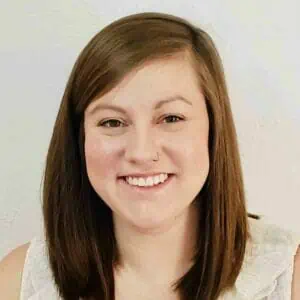At the end of 2023, DSF announced our largest-ever grant award in the amount of $1 million directed to Ingo Helbig, MD and Ethan Goldberg, MD, PhD at The Children’s Hospital of Philadlephia (CHOP) to lead a large study aiming to collect samples from 500 patients with SCN1A-related epilepsy for whole genome sequencing. This genetic data will be paired with clinical data using novel methods developed by their research group to transform clinical information to a format that can be used for computational analysis. Read on to learn more about the concepts behind this effort and find information on how patients with SCN1A-related disorders can participate in this study and contribute to our understanding of Dravet syndrome and related epilepsies.
A frequent topic of discussion in the research, clinical, and patient community is the diversity of outcomes for patients with Dravet syndrome. Patients may have varying seizure types and frequencies, differing responses to medications, and variable impacts on other symptoms of Dravet syndrome such as cognition, speech, behavior, and motor development. This can also be referred to as the ‘phenotypic spectrum’ of Dravet syndrome. Understanding more about the factors that impact outcomes along that phenotypic spectrum could help us predict more about the supports a patient may need or influence which medications are prioritized in a treatment plan. Research has increased our understanding of the phenotypic spectrum of patients with Dravet syndrome and the many variants or mutations in the SCN1A gene that are the primary cause of Dravet syndrome. These mutations can occur all along the length of the DNA that makes up the sequence for the SCN1A gene, and so some patients have unique mutations that have not been identified previously. Studies have compared clinical symptom presentations of patients with Dravet syndrome with their SCN1A mutation types and no predictive patterns have emerged. Even when two patients have the same mutation in SCN1A, their symptoms and outcomes can be quite different. This suggests that other factors could impact the overall outcome from a primary causal mutation in SCN1A, including background genetics.
Research has identified some external factors that can impact the long-term outcomes for patients, such as worsened outcomes from extended exposure to sodium channel blockers that are contraindicated for Dravet syndrome. However, research in mouse models as well as in families with inherited SCN1A mutations have indicated that background genetics and modifier genes may also play a role. A modifier gene would be a change or variation in another gene that affects the severity of symptoms caused by the primary mutation in SCN1A. A change in a modifier gene alone might not make much of an impact on an individual’s overall health, but in the presence of a more detrimental mutation in another gene like SCN1A it might tip the scales further in one direction or the other. This study at CHOP aims to gather genomic and clinical data from patients with SCN1A-related disorders that could contribute to our understanding of this topic.
Genetic modifiers can be explained with an analogy to a car with worn-out tires. Worn tires may not greatly impact how well a car drives under clear road conditions with good brakes, but if there is suddenly a heavy rainstorm, that car is likely going to be at a much higher risk because of the worn tires (and even more so if there was a problem with the brakes, etc). In that scenario, the rainstorm would be the causal SCN1A mutation, which is going to be a difficult situation for any car driving through it. However, if there are other more subtle disruptions to the car (which would represent genetic modifiers), such as the worn tires or brakes, the car is going to be at a higher risk of a more severe outcome navigating the storm. Genetic modifiers do not always work in a negative direction; some modifiers could improve the outcome (maybe the car instead has high quality rain tires).
This new study marks a major milestone of investment from DSF in a research project that holds importance to the patient-family community and creates a forward-thinking resource of data that can be re-examined and expanded upon in the future. We encourage the community to learn more about participation in this study and, if your loved one qualifies, to consider taking part.
- See the flyer below and email scn1a@chop.edu for more information about participation (be sure to include your loved one’s name, age, and location).
- Representatives from the CHOP research team will also be at the DSF Family & Professional Conference taking place June 20-22!
Does your loved one have a Dravet diagnosis but no identified genetic variant? US-based primary caregivers interested in research opportunities can contact veronica@dravetfoundation.org.
*Please do not email sensitive medical information to DSF.
If you have lost a loved one to a Dravet-related cause and are interested in participating in research, US-based caregivers can contact veronica@dravetfoundation.org






